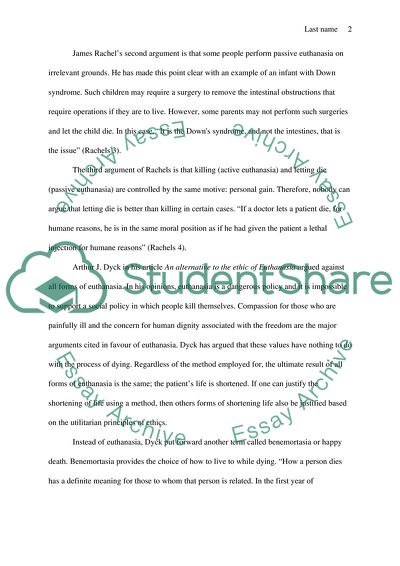Cite this document
(Euthanasia Essay Example | Topics and Well Written Essays - 1250 words - 8, n.d.)
Euthanasia Essay Example | Topics and Well Written Essays - 1250 words - 8. https://studentshare.org/philosophy/1776617-euthanasia
Euthanasia Essay Example | Topics and Well Written Essays - 1250 words - 8. https://studentshare.org/philosophy/1776617-euthanasia
(Euthanasia Essay Example | Topics and Well Written Essays - 1250 Words - 8)
Euthanasia Essay Example | Topics and Well Written Essays - 1250 Words - 8. https://studentshare.org/philosophy/1776617-euthanasia.
Euthanasia Essay Example | Topics and Well Written Essays - 1250 Words - 8. https://studentshare.org/philosophy/1776617-euthanasia.
“Euthanasia Essay Example | Topics and Well Written Essays - 1250 Words - 8”. https://studentshare.org/philosophy/1776617-euthanasia.


